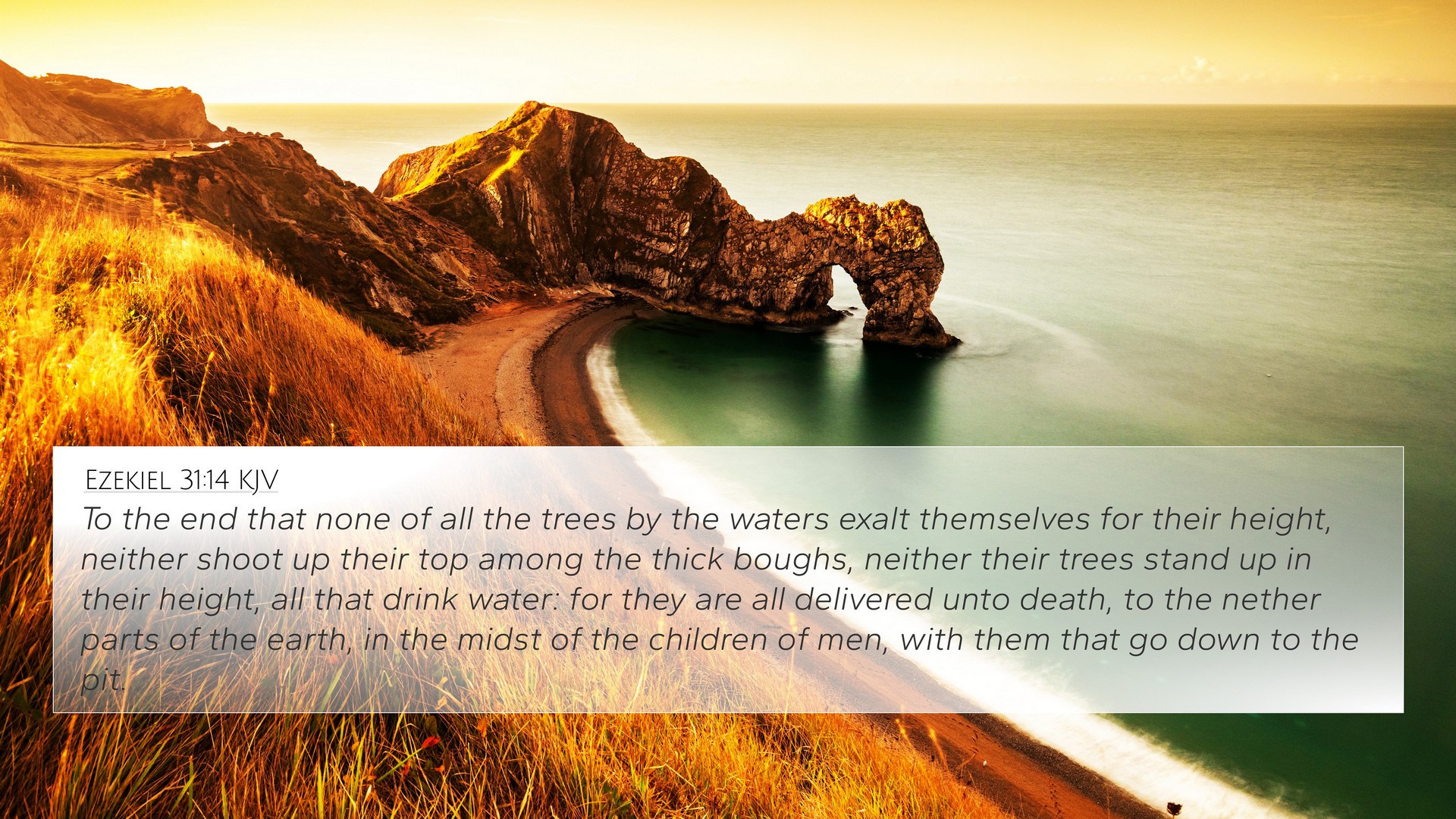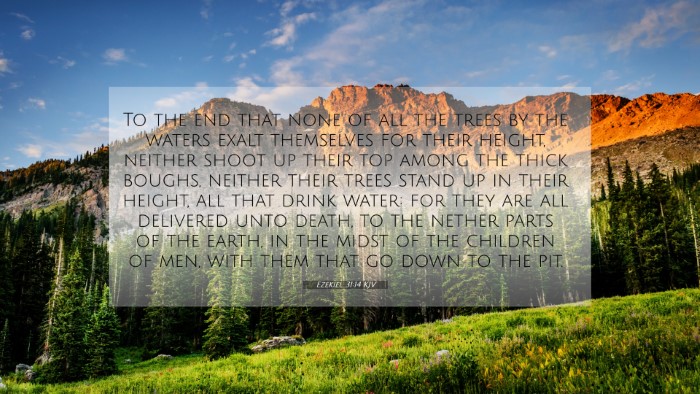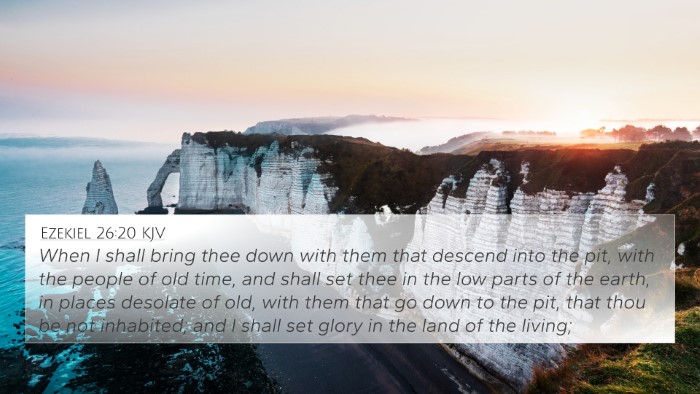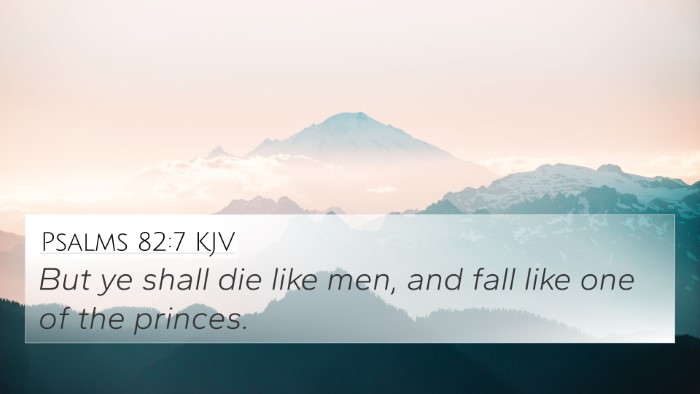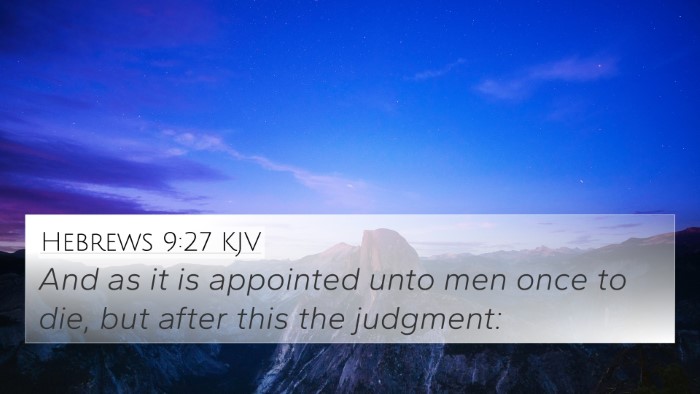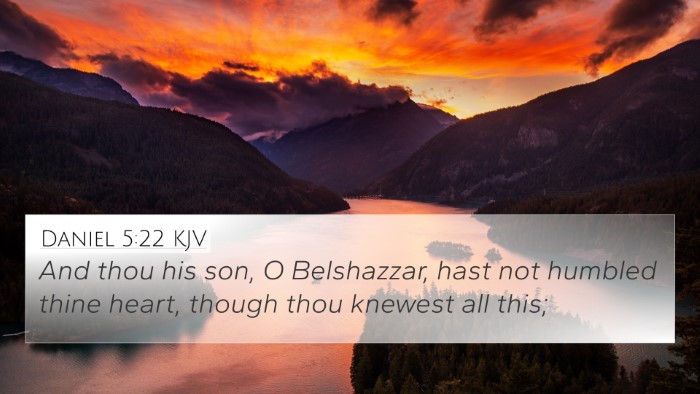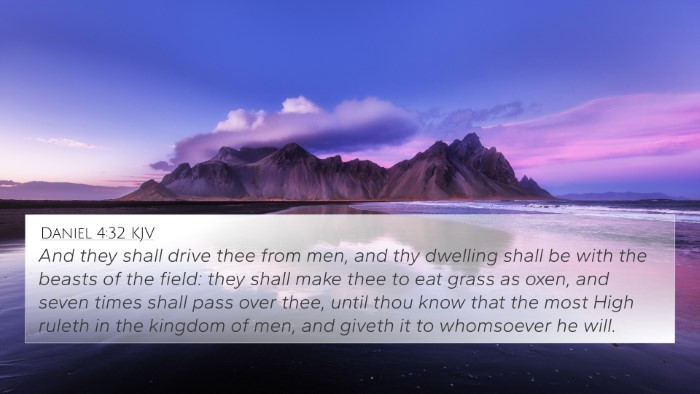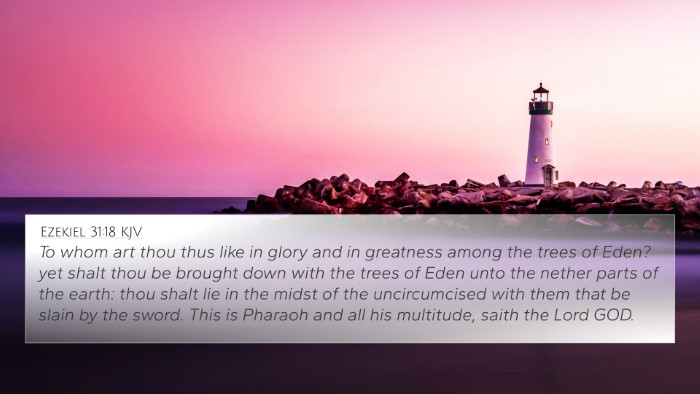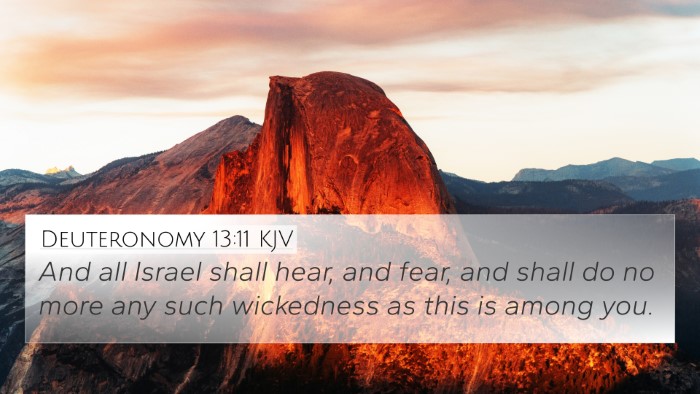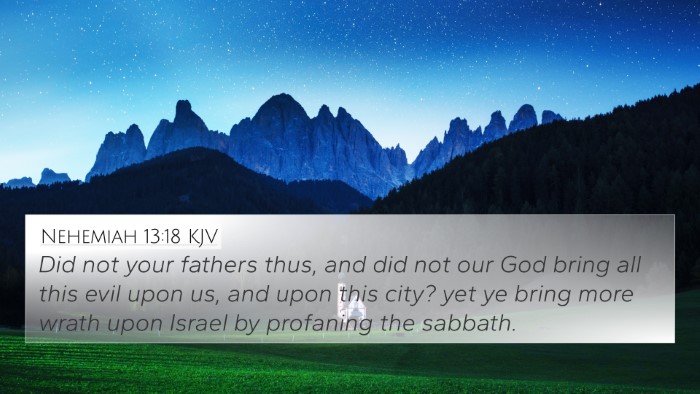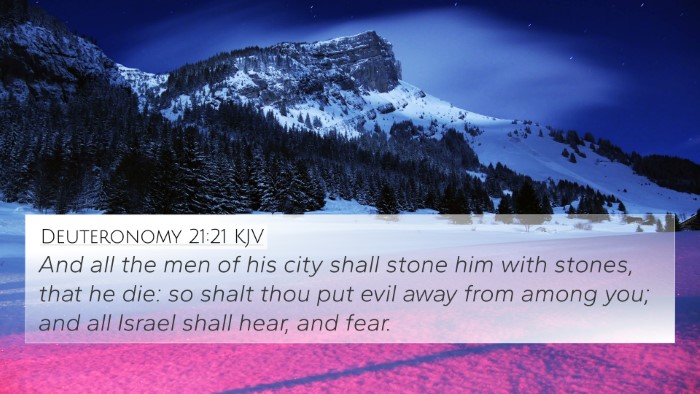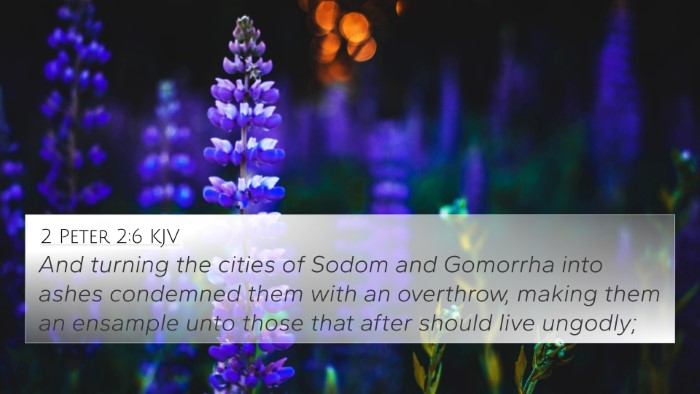Ezekiel 31:14 - Verse Meaning and Interpretation
Ezekiel 31:14 states:
"Therefore thus saith the Lord God; because thou hast lifted up thyself in height, and he hath shot up his top among the thick boughs, and his heart is lifted up in his height;"
Summary of Interpretations
This verse presents a powerful metaphor comparing the pride of nations and individuals to the towering trees of Lebanon. The height of these trees symbolizes human arrogance and self-exaltation, which ultimately lead to downfall.
In the context of Ezekiel's prophetic ministry, the passage highlights the danger of greatness that leads to pride, a recurring theme in Biblical literature.
Combined Insights from Commentaries
-
Matthew Henry: Henry emphasizes the inevitable judgment that follows pride, arguing that the prosperity of nations does not guarantee divine favor. Instead, it leads to a critical examination of the heart's attitude toward God.
-
Albert Barnes: Barnes focuses on the symbolic representations in the verse, pointing out how the imagery of the tree illustrates the might of ancient empires. He underscores that greatness apart from humility before God is futile and reckless.
-
Adam Clarke: Clarke explores the ultimate purpose of this metaphor in depicting the downfall of Egypt. He illustrates how the pride of nations is in direct opposition to God's sovereignty, serving as a warning to all.
Thematic Connections and Cross-Referencing
Ezekiel 31:14 can be cross-referenced with other Bible verses to draw deeper insights and understand the biblical themes of pride, judgment, and humility. Below are significant connections:
- Proverbs 16:18: "Pride goes before destruction, and a haughty spirit before a fall."
- Isaiah 14:12-15: The description of the fall of Lucifer serves as a poignant example of pride leading to downfall.
- James 4:6: "But he gives more grace. Therefore, it says, 'God opposes the proud, but gives grace to the humble.'"
- Jeremiah 48:29: Reference to Moab's pride and the resultant judgment.
- Luke 14:11: "For everyone who exalts himself will be humbled, and he who humbles himself will be exalted."
- 1 Peter 5:5: Encouragement for humility among believers, highlighting the principle of divine opposition to pride.
- Matthew 23:12: Jesus teaches about the inversive nature of divine judgment, declaring that the exalted will be humbled.
- Romans 12:3: A call towards sober judgment and humility in seeing oneself rightly in relation to others.
- Psalm 131:1: A beautiful expression of humility and trust in God.
Understanding Through Inter-Biblical Dialogue
The exploration of Ezekiel 31:14 through various lenses reveals a consistent biblical narrative concerning pride and humility. In the broader context of Scripture, humility is viewed as essential for receiving God's grace.
This verse, therefore, underlines the importance of recognizing one's standing before God, compelling believers to cultivate a humble heart.
Conclusion
In summary, Ezekiel 31:14 serves as a cautionary tale against pride and self-exaltation. Through the combined insights from public domain commentaries and an extensive examination of related verses, one can appreciate the depth and interconnectedness of biblical teaching regarding humility.
For those seeking to understand the broader implications of this verse, exploring Bible concordances and various cross-reference tools can enhance study and personal reflection on these themes.
Tools for Further Study
- Bible concordance for locating themes related to pride.
- Cross-reference Bible study guides for deeper insights.
- Explore comprehensive Bible cross-reference materials for thematic connections.
